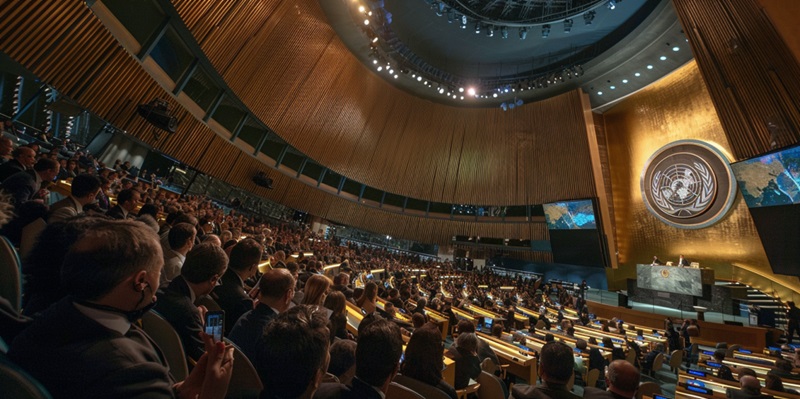In a historic move, the UN General Assembly has unanimously passed a resolution aimed at establishing ethical guidelines for artificial intelligence (AI), supported by over 120 countries and agreed upon by all 193 member states. This momentous resolution reflects a universal commitment to ensuring that the development of AI technologies aligns with human rights, ethical standards, and social well-being as they become increasingly ingrained in everyday life. The concerted effort by nations around the globe to uphold common values and norms amidst technological growth positions the UN at the forefront of shaping responsible AI practices for the future.
Crafting a Universal Framework for AI
At the heart of the resolution is a call to deepen public understanding of AI’s potential benefits and risks, coupled with a call for increased investment in ethical and human rights-respecting AI research and development. The UN urges member states to develop and enforce national policies that place robust safeguards on AI usage, with a focus on maintaining privacy and protecting individual rights. Setting these global standards is a bid to maximize AI’s positive impact while curbing the risks related to biases, discrimination, and potential misuse.
Promoting Global AI Ethics and Equity
The resolution highlights the critical importance of diversity in AI development and the need to eliminate bias from these technologies. It represents an international agreement to prevent AI systems from perpetuating societal discrimination. By promoting the responsible creation of AI, the mandate addresses the disparity in AI capabilities among nations and seeks to increase technological capacities in developing countries, ensuring equitable access to AI’s advantages. This initiative illustrates a concerted effort to direct the progress of AI in a manner that is inclusive and adheres to universal values of justice and fairness.
Enhancing International Cooperation
A key aspect of the resolution includes a strong plea for global cooperation. It encourages a unified effort among countries to exchange knowledge, establish best practices, and provide support to each other. This call for collaborative action underscores the resolution’s role as a catalyst for creating a consistent global stance on AI management and deployment. The UN’s push for international cooperation is aimed at preventing a divided technology landscape marked by inconsistent approaches to AI, which could result in global divisions.
Leveraging AI for Humanity’s Benefit
By adopting this resolution, the UN has taken a foundational step towards ensuring that AI is harnessed for the good of humanity, prioritizing human dignity and societal welfare. This significant pact signals a shift in the international community’s readiness to actively guide the path of AI. It invites governments, non-governmental organizations, and industry stakeholders to work together to set the norms that will integrate AI into societal progress. In doing so, the UN promotes a vision where technology advances in step with the rights and liberties that are essential to people globally, marking a notable benchmark in the discussion on technology’s future and its impact on humanity.

